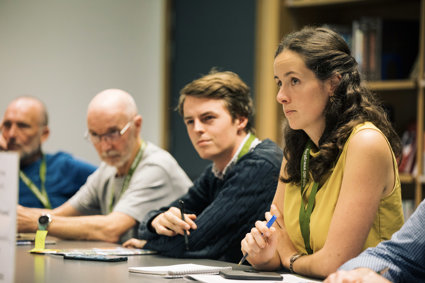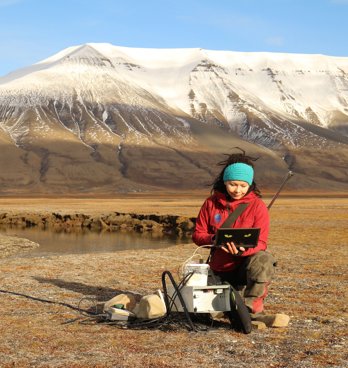
Explore 2020
Explore 2020 brought together a range of expedition professionals, scientists, and travellers, with experience all over the world, to help participants get the most out of their projects.
Explore 2020 was a virtual event held on Saturday 14 November 14 2020. Anyone planning expeditions or fieldwork was welcome to join the shortened online event of talks and discussions. The event aimed to inspire and inform participants about their own projects, enhancing our understanding of the planet and its people.
Recordings
Speakers
Paul Rose (Chair) is a man at the front line of exploration and one of the world’s most experienced science expedition leaders. Paul Rose helps scientists unlock and communicate global mysteries in the most remote and challenging regions of the planet. Former Vice President for Expedition & fieldwork at the Royal Geographical Society (with IBG), Paul is currently expedition leader for the National Geographic Pristine Seas Expeditions.
Arzucan Askin is a geographer and political ecologist currently studying Biodiversity, Conservation and Management at the University of Oxford. Her research expeditions have taken her to to remote parts of the world both on land and at sea. Before joining the World Bank’s West Africa Coastal Area Program, she led a research project to Cuba, investigating the connections between gender and climate change resilience on the island with Marta Santiváñez and Caitlan Read. She is the 2021 OWUSS European Rolex Scholar.
Anya Gleizer is a DPhil student in the School of Geography and the Environment at the University of Oxford. She is researching creative methods in Geography and the changing relationships between indigenous Siberian tribes and extractive industry infrastructure on native land, focusing on the Yenisei river watershed in Evenkia, Central Siberia. Gleizer's background is in fine art and she engages collaborative performance and interactive new technologies (VR, AR) in her research methodologies.
Muki Haklay is the Professor of Geographical Information Science in the Department of Geography, University College London. He is co-director of the UCL Extreme Citizen Science group, which is dedicated to allowing any community, regardless of their literacy, to use scientific methods and tools to collect, analyse, interpret and use information about their area and activities; and co-founder and director of Mapping for Change, a social enterprise dedicated to participatory mapping and citizen science.
Craig Pollard is a well-known global fundraising consultant, the founder and author of Fundraising Radicals. He has helped hundreds of non-profits, expeditions, and projects across more than seventy countries, to raise many hundreds of millions of pounds. Among these are his own expeditions and projects, including a 17,000km cycle ride from London to Cape Town.
Caitlan Read is currently studying for an Advanced Masters degree in International Relations and Diplomacy at Leiden University in the Netherlands. Having worked in an Embassy, she continues to combine her passion for Diplomacy with gender and environmental policy in her current research. Building on previous research into environmental negotiations and her thesis on US-Cuban relations, she was particularly interested in global climate cooperation and what part Cuba's climate plan plays in it.
Marta Santiváñez is an investigative journalist and social policy researcher based in London. Her work explores questions of migration regarding gender, climate change and labour. She has written extensively about freedom of speech, Brexit, and immigration restrictions both in Spain and the UK. Marta holds a BA (Honours) in Politics from SOAS, and an MSc from LSE. She is the co-founder with Arzucan Askin) of the jfa human rights journal.
Indah Sartika Sari is a Masters student in Conservation and Biodiversity at the University of Exeter. She is one of 25 conservationists worldwide to join a one-year training programme for Emerging Wildlife Conservation Leaders focusing on the Sumatran Rhino conservation. Indah’s passion for conservation and biodiversity has led her to do fieldwork on Bornean avian vocalisations, and as a project coordinator for an international Field Course to bring students to explore Borneo. Previously, she worked on community-based conservation issues in coastal areas with a focus on replanting degraded areas in West Kalimantan.
Liam Taylor is a third-year PhD student at the University of Leeds, researching new technologies for observing and monitoring mountain glaciers. Liam works in the Cordillera Vilcanota, Peru, using low-cost sensors from Raspberry Pis and newly launched satellites, to better understand the melting ice and the impact it will have on rural communities of Peru. His fieldwork in developing a hazard warning system for outburst flood events is supported by the Royal Geographic Society (with IBG) Geographical Club Award.
